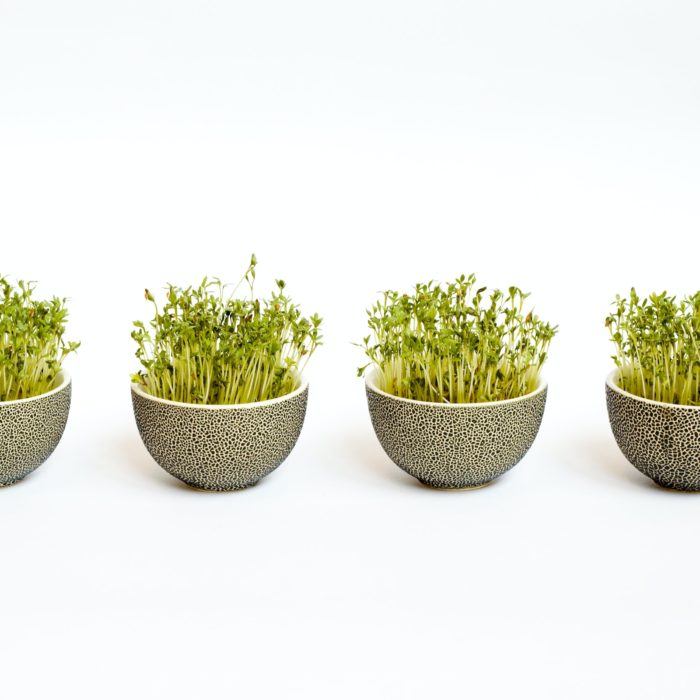By eating them, those are passed on to us. They are also rich in antioxidants, improve digestion, and may even have anti-tumor effects. Add to that the fact that they can be grown year-round, so you have a source of healthy, living greens even in the dark days of winter. And finally, sprouts are very easy to grow. So now we know why you should grow sprouts. Next up is what to sprout.

Which Sprouts Should You Grow Indoors?
Once you’ve gathered a sprouting jar and lid, or a special sprouting container, you’re ready to sprout! Almost any seed will sprout given the right conditions, but here is a list of the most popular types.
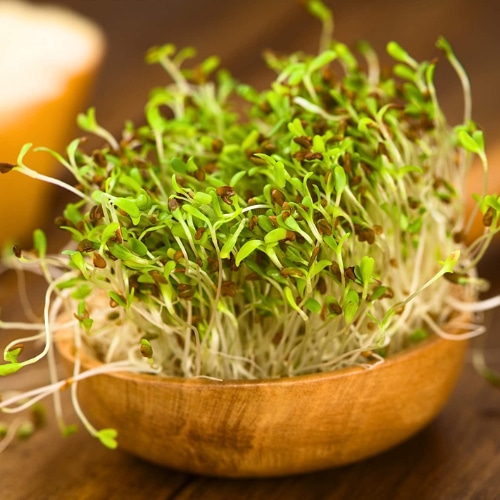
Alfalfa
Some people like to green them up by moving the sprouting container where it will get some sun on the fourth day or so. Just a few teaspoons of alfalfa seeds will quickly fill your container. Very high in vitamin K for healthy calcium levels.

Clover
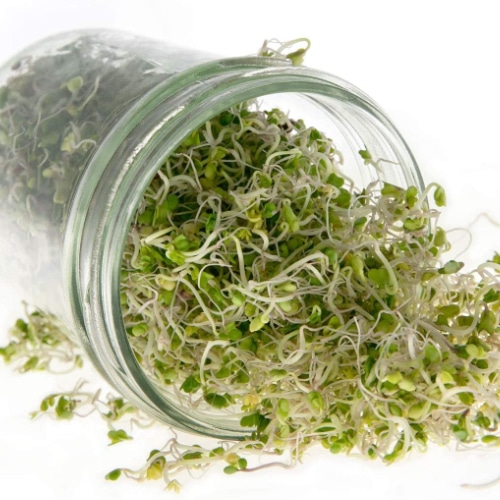
Broccoli
Broccoli sprouts have a bit of a grassy, nutty taste with a slight kick. Sprout them in the same manner as other sprouts, although they will probably be ready to harvest a few days earlier.
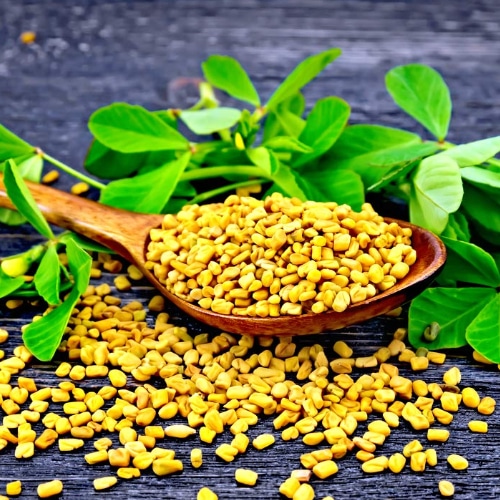
Fenugreek
They taste like curry, although others claim they make sweat and urine smell like maple syrup.
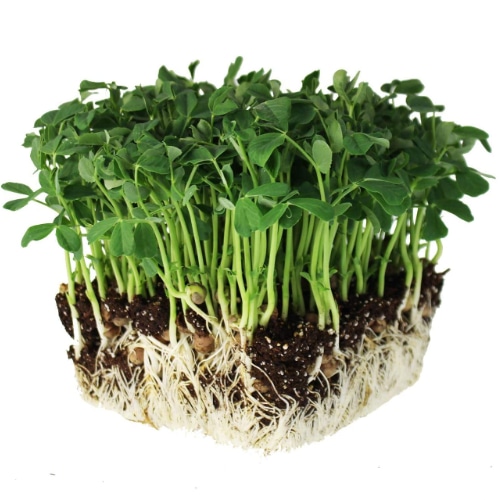
Green Pea
Broccoli sprouts have a bit of a grassy, nutty taste with a slight kick. Sprout them in the same manner as other sprouts, although they will probably be ready to harvest a few days earlier.
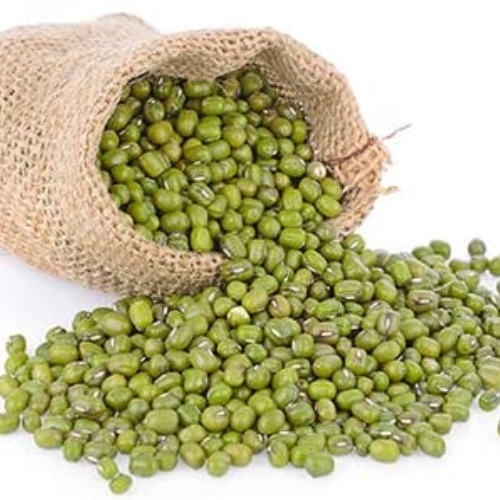
Mung
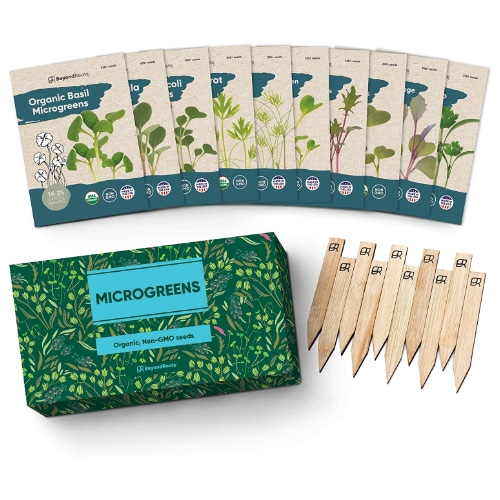
Veggies
When sprouting, the seeds must be rinsed and drained twice a day. If you’re worried, it’s fine to rinse and drain up to four times a day. Finally, pregnant people and those with compromised immune systems might be better off cooking all sprouts.
Seeds You Shouldn’t Use for Sprouting
While most seeds can be sprouted, there are some that should not be eaten as sprouts because of toxins in the seeds. These include kidney beans, tomato seeds, eggplant, all peppers, potatoes, and rhubarb.
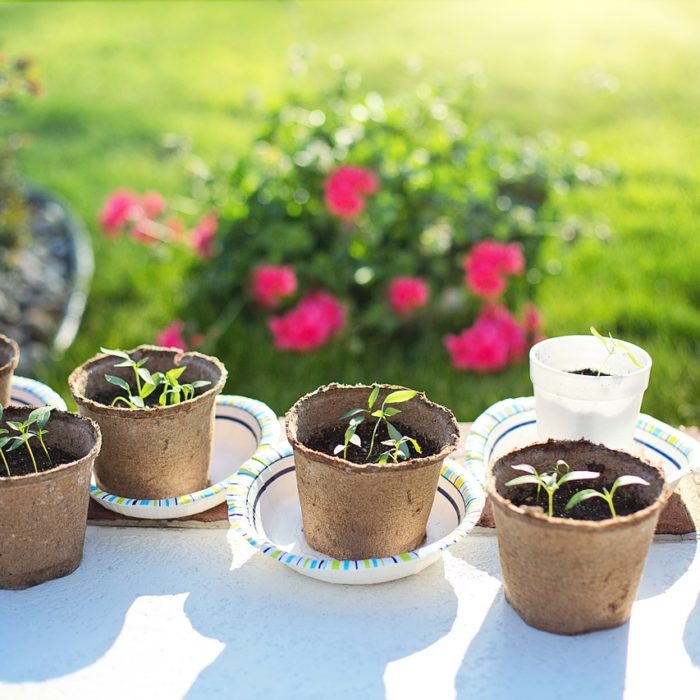
Best Places to Get Indoor Sprout Seeds
Here are four different places you can find spouts online:
-
Amazon
Amazon is an easy place to find almost anything, including the seeds and materials you need to grow sprouts. You can find individually packaged seeds or sampler packs so that you can ultimately find the taste you like best.
-
True Leaf Market
True Leaf Market offers a large selection of organic and non-GMN sprouting seeds that you can use to grow your own delicious sprouts.
-
Johnny Seeds
You can find at least 15 types of sprouting seeds on the Johnny Seeds website. They all come untreated and have tested negative for E. coli 0157 and Salmonella.
-
Sprout House
Sprout House has a nice selection of non-GMO sprouting seeds. Each comes with a full description so you will exactly what you are going to get.

